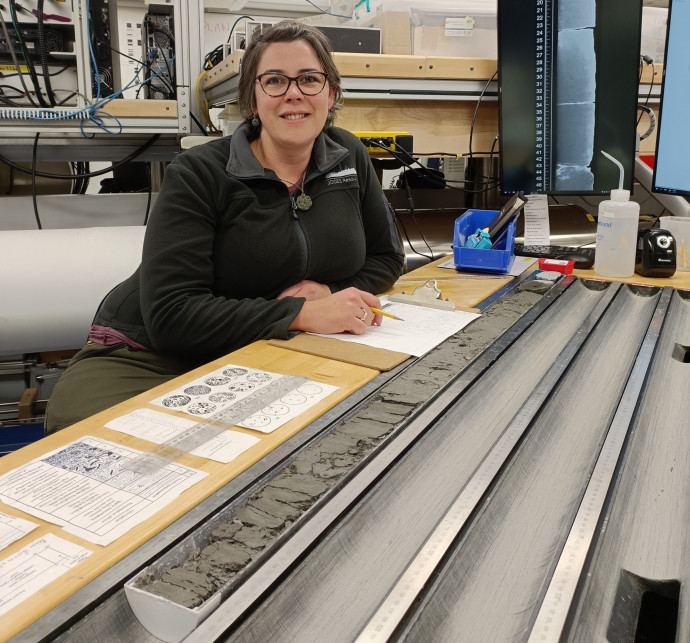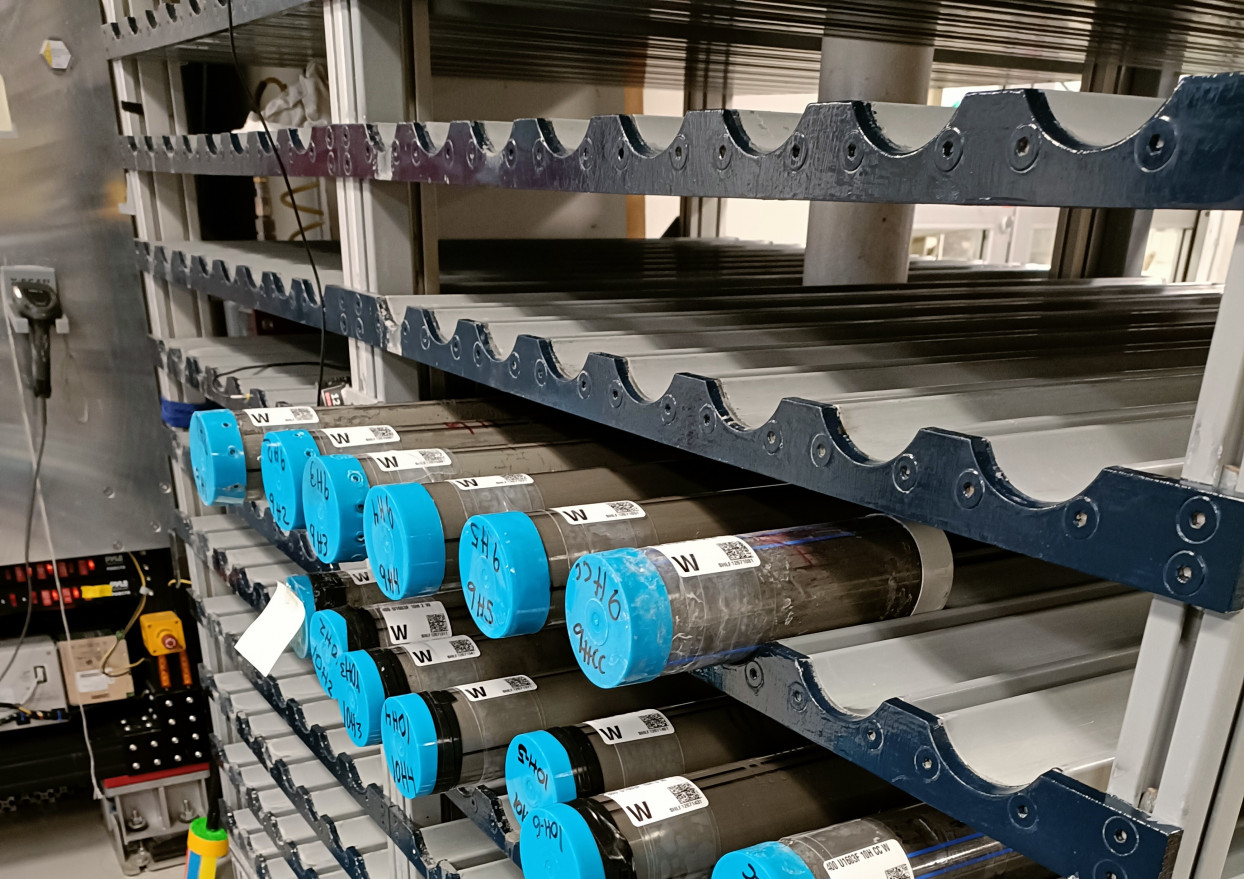Sediments, cycles, and sea level: How will Greenland’s ice sheet respond to a warmer climate?

Global temperature and ice sheet melting follow natural cycles influenced by the Earth’s orbit, but these cycles are now being overshadowed by human-driven changes to the climate. Dr Georgia Grant from Te Pū Ao GNS Science will study ocean sediments around Greenland to reconstruct the movements of its ice sheet in the warmer recent past, and use this knowledge to inform predictions of future melting rates and sea level rise
Published on 2 Whiringa-ā-rangi November 2023
Subtle variations in Earth’s orbit affect the amount and distribution of sunlight that reaches the surface, which in turn influences the advance and retreat of ice sheets. Previously, these orbital cycles have been a key driver of Earth’s overall temperature, leading to extremes like ice ages and “hothouse” periods. It has now become difficult to distinguish the effects of orbital cycles from those of human-driven climate change, complicating our predictions of future sea level rise.
As for many questions around climate, the key to the future may be held in the past. Dr Grant has been awarded a Marsden Fund Fast-Start grant to investigate how the Greenland Ice Sheet responded to a warmer climate in the geologically-recent past, specifically the mid-Pliocene Warm Period around 3 million years ago. Temperatures during this period resemble what is predicted for our near future. She and her team will investigate the sediment record in the oceans around Greenland to look for tell-tale signs of ice sheet expansion and retreat, and compare this to records for Earth’s other major ice sheet, the Antarctic Ice Sheet. This project capitalises on the recent collection of rare deep-sea sediment samples collected from around Greenland by the International Ocean Discovery Program.

Racks of cores ready for processing by the science party in the ship's core laboratory (photo: supplied)
Understanding and predicting the response of the Greenland Ice Sheet to natural and anthropogenic changes in temperature will be crucial for the future of Aotearoa New Zealand. Paradoxically, melting of this northern ice sheet will influence the sea level around our coastlines much more significantly than melting of the southern Antarctic Ice Sheet, and the two ice sheets do not respond in the same way to orbital cycles. Research like this will help us plan for our future in a warming world.
